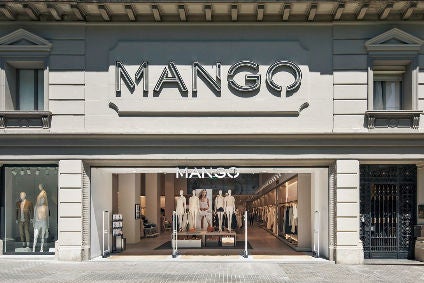
The agreement, established as part of the Mango StartUp Studio project, entails Mango supporting Recovo’s textile waste business through a convertible equity loan. The project includes an acceleration programme in which entrepreneurs can learn about the Mango operation first-hand, as well as receiving mentoring and advice.
Recovo is a re-commerce platform for textile, yarn and production material waste. Through textile recovery, companies can give a second life to textile surpluses and minimise their environmental impact. Recovo presents a business model which contributes to a circular future through technology, traceability and community action.
The start-up, founded in 2021, now participates in the Mango StartUp Studio acceleration process, in which entrepreneurs receive training on the purchase and sale of textiles in a major fashion company, product architecture and UX for a personalised experience, the development process and architecture of an own marketplace, in addition to recommendations for the creation of a Recovo logo that will be recognised by the industry.
Mango StartUp Studio, the fashion start-up’s accelerator created by Mango, aims to promote innovation in Mango, detect new growth opportunities and participate in the development of new technologies or business models.
The acceleration plan also includes mentoring sessions, training and collaboration, so that the meetings with the entrepreneurs help to foster networking.
The move comes as Mango looks to ramp up its efforts around sustainability.
Earlier this year Mango said the SBTi has approved its targets to reduce total scope 1 and 2 emissions by 80% and scope 3 emissions by 35%, compared to 2019, and achieve net-zero emissions by 2050.
Mango’s Strategic Sustainability Plan aims to achieve net-zero emissions by 2050. To achieve this goal, the company has set itself intermediate targets for 2030: an 80% reduction in its direct greenhouse gas emissions, as well as those generated by the energy it consumes (scope 1 and 2), and a 35% reduction in the greenhouse gas emissions produced in its supply chain, products and services, and fuel and energy; and transport and distribution (scope 3), all considering 2019 as the base year.
Last February, the company brought forward its sustainability targets after 80% of all garments in 2021 were marketed under the Committed label. Mango also forecasts that by 2025, 100% of the polyester used will be recycled, 100% of the cellulose fibres used will be of controlled origin and traceable, and 100% of the cotton used will be more sustainable.
The Mango Sustainability Plan also envisages the participation and collaboration of numerous organisations and initiatives to minimise its impact on the environment. In 2019, the company reaffirmed its commitment to sustainability by signing up to the Fashion Pact, the first global movement in the fashion industry to join forces and work together to fight climate change, and in 2020 Mango signed the United Nations Fashion Industry Charter for Climate Action, which sets out 16 principles to advance together to reduce the fashion industry’s impact on the planet.



